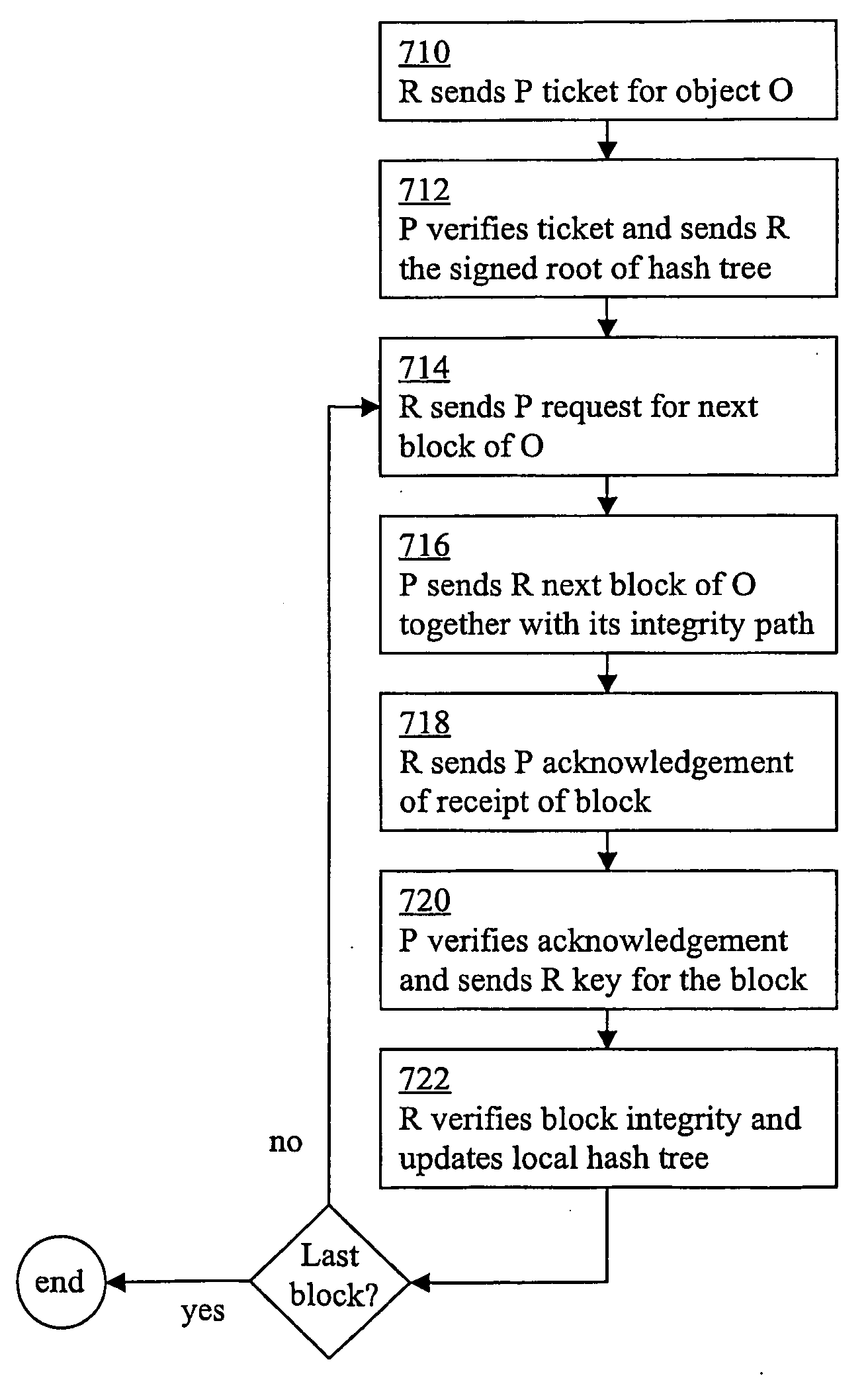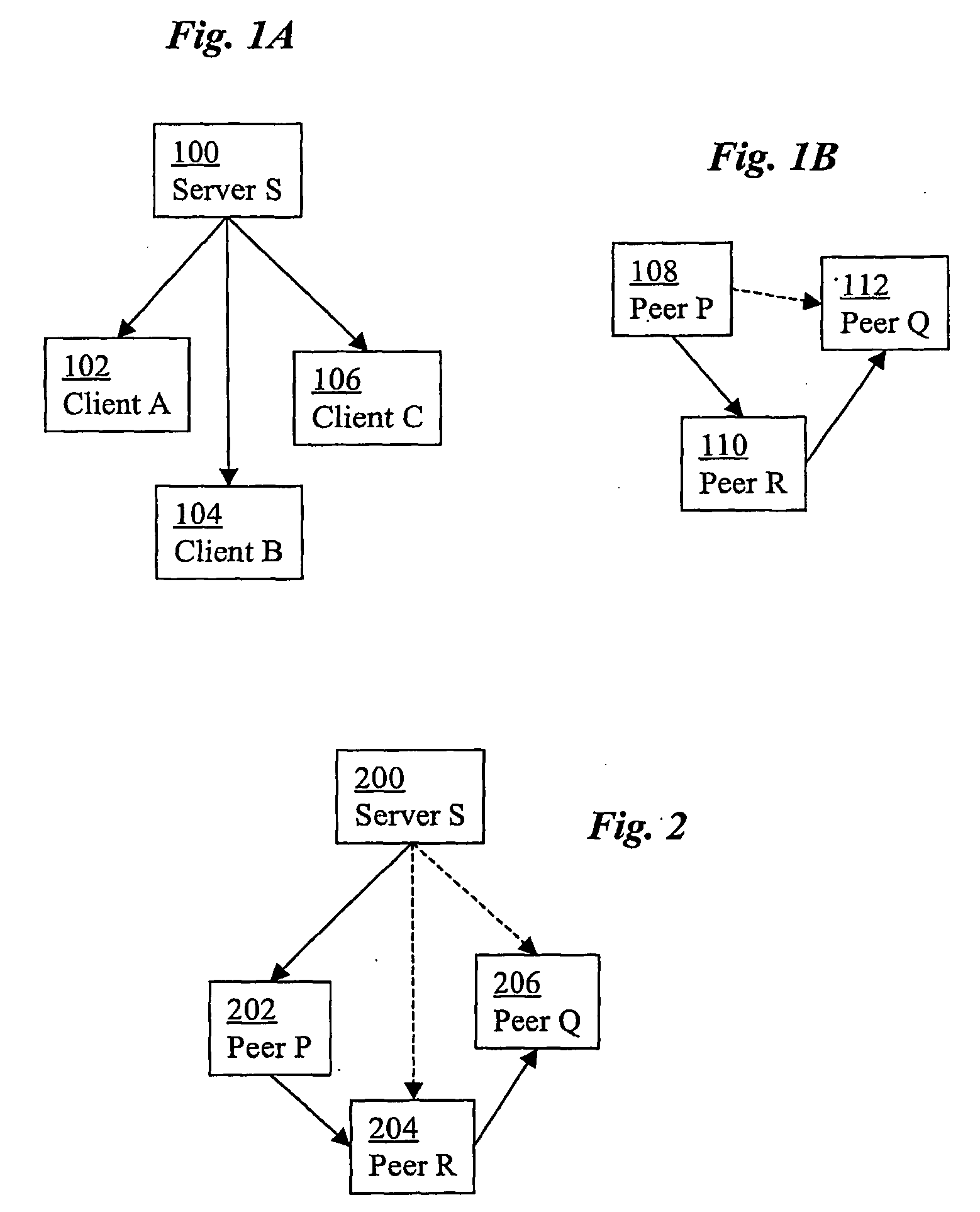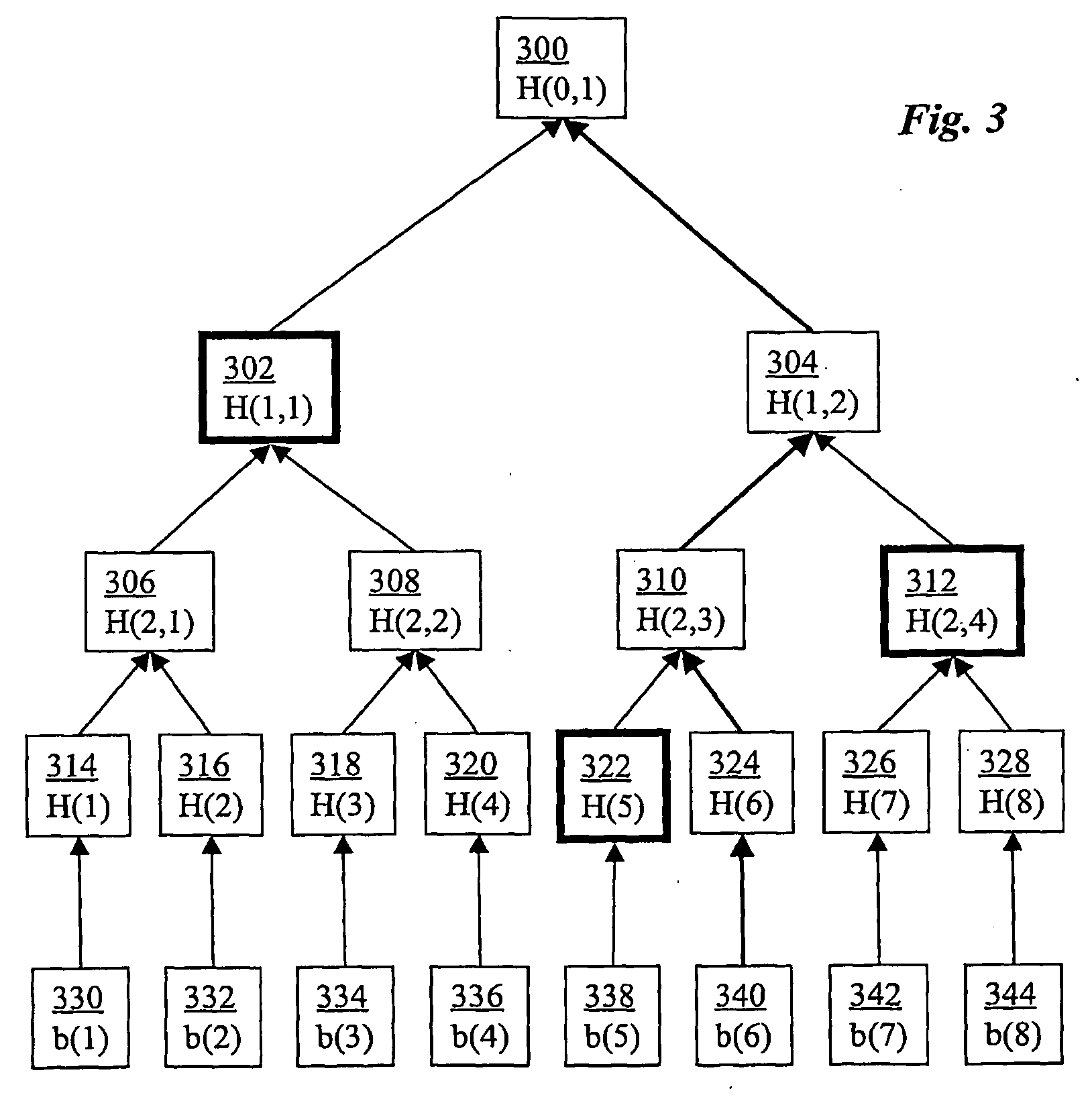Security protocols for hybrid peer-to-peer file sharing networks
a file sharing network and security protocol technology, applied in the field of hybrid peer-to-peer file sharing networks, can solve the problems of reducing performance, peer-to-peer networks posing new security issues, and the difficulty of providing data integrity and proof-of-service in a peer-to-peer network is considerably larger
- Summary
- Abstract
- Description
- Claims
- Application Information
AI Technical Summary
Benefits of technology
Problems solved by technology
Method used
Image
Examples
Embodiment Construction
[0027]In one embodiment, the present invention provides a light-weight, scalable, robust, and flexible security protocol to support a suite of security functionalities for applications using the hybrid peer-to-peer paradigm. The security protocol can be implemented in a variety of ways, including a library of function calls, a middleware service, application-integrated features, operating system functions, etc. In a preferred embodiment, a set of security functionalities include: (1) client authentication to ensure that only authenticated clients can obtain a server's data, whether or not directly from the server, (2) data confidentiality to avoid data leakage to untrusted entities, (3) data integrity to detect data fabrication or modification with low overhead, whether the data is directly from a server or indirectly from clients, and (4) proof-of-service to allow a client to obtain a precise, non-reputable proof that it has provided specific data-sharing service to another client....
PUM
 Login to View More
Login to View More Abstract
Description
Claims
Application Information
 Login to View More
Login to View More - R&D
- Intellectual Property
- Life Sciences
- Materials
- Tech Scout
- Unparalleled Data Quality
- Higher Quality Content
- 60% Fewer Hallucinations
Browse by: Latest US Patents, China's latest patents, Technical Efficacy Thesaurus, Application Domain, Technology Topic, Popular Technical Reports.
© 2025 PatSnap. All rights reserved.Legal|Privacy policy|Modern Slavery Act Transparency Statement|Sitemap|About US| Contact US: help@patsnap.com



